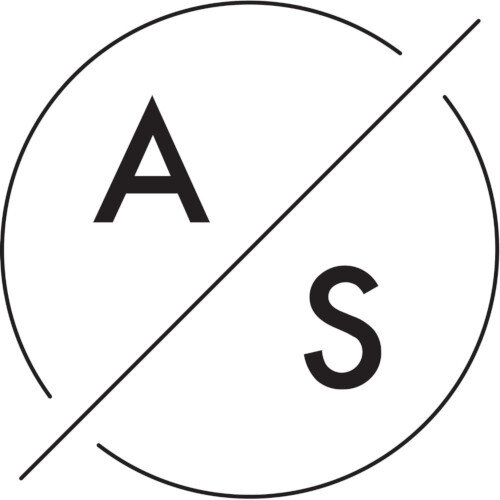Best Nonprofit & Charitable Organizations Lawyers in Acharnes
Share your needs with us, get contacted by law firms.
Free. Takes 2 min.
List of the best lawyers in Acharnes, Greece
About Nonprofit & Charitable Organizations Law in Acharnes, Greece
Nonprofit and charitable organizations in Acharnes operate within the national legal framework of Greece while also interacting with local authorities such as the Municipality of Acharnes and regional public offices in Attica. Common organizational forms include associations, foundations and other non-profit entities established to serve social, cultural, educational, charitable or environmental goals. These organizations must adopt a written statute that sets out their purpose, governance, membership rules and financial controls. They also must meet national registration, taxation and reporting requirements to operate legally and to qualify for any tax or public-benefit status.
Though the basic rules are national, local practice and administrative contacts matter. For example, local municipal approvals may be needed for certain fundraising events or for operating facilities, and local tax offices and courts are the usual points of contact for registration and compliance issues in Acharnes.
Why You May Need a Lawyer
Setting up and running a nonprofit involves legal steps where professional help prevents mistakes and reduces risk. A lawyer experienced in nonprofit law can help in many situations:
- Choosing the right legal form and drafting a clear statute that protects the organization and its founders.
- Registering the organization with the correct authorities and obtaining tax registration and any public-benefit recognition or exemptions.
- Structuring governance and internal rules to avoid conflicts, ensure accountability and meet donor expectations.
- Drafting contracts with funders, employees, volunteers, suppliers or service providers.
- Advising on fundraising compliance, including public collections, lotteries, sponsorships and online donations.
- Handling employment law matters, including contracts, social security and termination issues for paid staff.
- Assisting with data protection and GDPR compliance for your members, donors and beneficiaries.
- Representing the organization in disputes, litigation, administrative inspections or when applying for public grants and EU funds.
Local Laws Overview
Key legal themes that apply to nonprofits in Acharnes reflect national rules with local procedures for implementation. Important practical aspects include:
- Formation and Registration: Nonprofit entities must have a written statute or deed and may need to be registered with the competent registry or court that handles associations and foundations. Proper registration enables the organization to open bank accounts, sign contracts and receive grants or donations.
- Governance and Statute Requirements: Statutes should define purpose, membership, bodies of governance such as the board, election procedures, decision-making quorums and procedures for amendment and dissolution. Transparency provisions and conflict-of-interest rules are best practice.
- Taxation and Public-Benefit Status: Nonprofits normally obtain a tax identity number and must comply with VAT and corporate tax rules where applicable. Some organizations can qualify for tax exemptions or reduced taxation if they are officially recognized as serving the public interest - the exact benefits and requirements vary and require proper documentation and sometimes a formal recognition process.
- Accounting and Reporting: Nonprofits must keep accurate accounts, prepare annual financial statements and file tax returns. Organizations that receive public funds or large donations may be subject to audits and stricter reporting obligations.
- Fundraising and Donations: Public fundraising, raffles and events often require municipal permits. Donors may seek receipts for tax deduction purposes, so clear donation records and compliant procedures are necessary.
- Employment and Volunteers: Hiring staff requires compliance with employment law, social security contributions and payroll reporting. Volunteers are not employees, but organizations should use written volunteer agreements, insurance and safety procedures to manage legal risk.
- Property and Leasing: Holding or leasing real estate for nonprofit activities raises issues of title, registration, zoning and municipal permits. Donations of property and in-kind gifts should be managed under clear internal rules.
- Data Protection: Compliance with the General Data Protection Regulation - GDPR - is mandatory for handling personal data of members, donors and beneficiaries, including registration with any national supervisory body if applicable.
- Dissolution and Asset Distribution: Statutes should specify how assets are handled on dissolution. Greek law often requires that remaining assets be transferred to another nonprofit with similar purposes or otherwise used for public benefit.
Frequently Asked Questions
What legal form should I choose for a new nonprofit in Acharnes?
Choice depends on your purpose, size and funding. Associations are common for member-driven groups and community initiatives. Foundations suit organizations established around a legacy or long-term endowment. A lawyer can help match your objectives with the right legal form and draft the statute to match your needs.
Do I need to register my nonprofit, and where do I register?
Yes, most nonprofits must be registered to act as legal entities, open bank accounts and receive grants. Registration is handled by the competent registry or court that deals with associations and foundations, and local administrative practices may affect the process. A lawyer or experienced local consultant can guide you to the correct office and procedure.
How do we obtain tax-exempt or public-benefit status?
Recognition as a public-benefit organization or approval for specific tax exemptions usually requires formal application and documented compliance with legal and accounting rules. You will need to demonstrate your charitable objectives, provide statutes and financial records, and follow any procedural steps required by tax authorities or relevant ministries.
What are the basic governance rules we must include in our statute?
At minimum include the organizations purpose, membership rules, general assembly procedures, composition and powers of the board, financial controls, rules for amending the statute and dissolution provisions. Clear rules reduce disputes and help meet donor and regulator expectations.
Can we pay employees and what are the obligations?
Yes, nonprofits can employ staff but must comply with employment contracts, payroll taxes, social security contributions and labor law protections. Ensure proper payroll registration and lawful contracts. For volunteers use written agreements that state voluntary nature and responsibilities without creating an employment relationship.
Are donations to our nonprofit tax-deductible for donors?
Donation deductibility depends on your legal status and recognition by tax authorities. Only organizations that meet specific criteria allow donors to claim tax deductions. Keep detailed donation receipts and consult a lawyer or tax advisor to confirm eligibility for donor tax benefits.
What rules apply to fundraising events in Acharnes?
Fundraising events may require permits from the Municipality of Acharnes, compliance with public safety and zoning rules, and adherence to local regulations for public collections or public entertainment. Advance planning and permission requests reduce the risk of fines or event cancellation.
How do we handle foreign funding or cross-border activities?
Receiving donations from abroad or participating in EU-funded projects introduces additional reporting, tax and contractual obligations. You may need currency transfer records, clear contracts and compliance with anti-money-laundering rules. Legal advice helps ensure full compliance with both Greek and international funding rules.
What are our reporting and audit obligations?
All nonprofits must keep accurate accounts and prepare annual financial statements. The scale of reporting and whether external audits are required depends on your legal form, size and whether you receive public funds. Maintain transparent records to satisfy donors and regulators.
What should we do if there is a dispute among board members or with members?
First consult your statute for dispute resolution procedures, which may require internal mediation, special assemblies or arbitration clauses. If internal remedies fail, legal representation may be needed to protect the organizations interests in court or during mediation. Early legal advice can often prevent escalation.
Additional Resources
Municipality of Acharnes - local municipal offices can advise on permits for events, use of public spaces and local support programs.
Region of Attica - regional offices may offer funding programs, social services partnerships and administrative support.
Independent Authority for Public Revenue - national tax authority for tax registration, VAT and donation tax issues.
Local Tax Office (DOY) serving Acharnes - for tax filings and procedural questions specific to your area.
Local Court of First Instance - the registry that often handles the registration of associations and foundations and court matters involving nonprofits.
Ministry of Labour and Social Affairs and Ministry of Culture and Sports - depending on activities, these ministries oversee social services, cultural organizations and related funding rules.
Law faculties and legal clinics in Athens universities - may offer pro bono advice or clinics specialising in civil society and nonprofit law.
Professional accountants and auditors experienced with nonprofit accounting - essential for maintaining compliance with Greek accounting and reporting standards.
Next Steps
1. Clarify your goals - define the organizations purpose, main activities, target beneficiaries and funding sources. This will help determine the appropriate legal form and required permissions.
2. Prepare a draft statute - include governance, financial controls and dissolution rules. A well-drafted statute prevents many future problems.
3. Consult a lawyer with nonprofit experience - seek advice on registration, tax status, employment, fundraising and local permissions specific to Acharnes.
4. Register and obtain tax numbers - complete registration with the competent registry and obtain a tax identification number so the organization can operate legally and open a bank account.
5. Set up accounting and compliance systems - engage an accountant familiar with nonprofit requirements and establish regular financial reporting and record-keeping procedures.
6. Apply for any public-benefit recognition or tax exemptions if applicable - prepare the supporting documentation and follow the formal application process.
7. Arrange insurance and risk management - insure premises, events and activities, and adopt policies for volunteers, data protection and safeguarding beneficiaries.
8. Maintain relationships with local authorities - inform the Municipality of Acharnes and regional bodies of your activities and comply with local rules for events and public collections.
If you need legal assistance, start by contacting one or two lawyers or law firms experienced in nonprofit and charity law in Athens and Attica. Ask about their experience with local registrations, tax-exempt applications and public funding. Request a clear cost estimate and scope for the services you need before you proceed.
Lawzana helps you find the best lawyers and law firms in Acharnes through a curated and pre-screened list of qualified legal professionals. Our platform offers rankings and detailed profiles of attorneys and law firms, allowing you to compare based on practice areas, including Nonprofit & Charitable Organizations, experience, and client feedback.
Each profile includes a description of the firm's areas of practice, client reviews, team members and partners, year of establishment, spoken languages, office locations, contact information, social media presence, and any published articles or resources. Most firms on our platform speak English and are experienced in both local and international legal matters.
Get a quote from top-rated law firms in Acharnes, Greece — quickly, securely, and without unnecessary hassle.
Disclaimer:
The information provided on this page is for general informational purposes only and does not constitute legal advice. While we strive to ensure the accuracy and relevance of the content, legal information may change over time, and interpretations of the law can vary. You should always consult with a qualified legal professional for advice specific to your situation.
We disclaim all liability for actions taken or not taken based on the content of this page. If you believe any information is incorrect or outdated, please contact us, and we will review and update it where appropriate.









